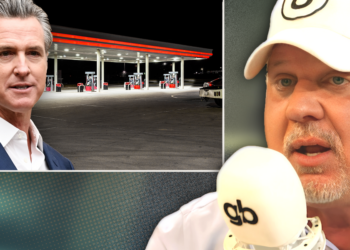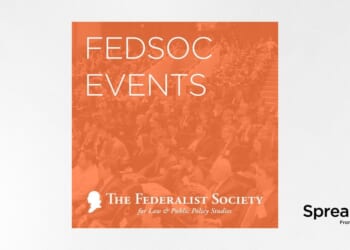The NATO allies are breathing a little easier after President Donald Trump left this year’s leaders’ summit at The Hague.
Trump departed the Netherlands on Wednesday after a whirlwind day during which NATO allies, led by Secretary-General Mark Rutte, appealed to the president about the importance of the alliance and were rewarded with his recommitment to the group.
“I came here because it was something I’m supposed to be doing, but I left here a little bit differently,” Trump told reporters during his post-summit press conference. “I left here saying that these people really love their countries. It’s not a ripoff. And we’re here to help them protect their country.”
Trump’s change of heart comes after NATO made multiple appeals to Trump even before the summit started on Tuesday night. These changes included shortening the meeting to one day to reduce the likelihood of him returning to Washington early, as he did last week from the Group of Seven leaders summit in Canada, and reducing the topics discussed to underscore areas of agreement rather than disagreement.
NATO also gave Trump a political “win,” with allies pledging to increase their defense spending from 2% of gross domestic product to 5% by 2035 as part of their “ironclad commitment” to their collective security amid Russia‘s war against Ukraine. Trump, himself, welcomed the announcement as “a monumental win for the United States.”
But NATO’s appeals to Trump did not stop there. Rutte, for one, used his home country advantage to charm Trump with help from the Dutch royal family. King Willem-Alexander and Queen Maxima hosted the pre-summit leaders dinner on Tuesday at the Royal Palace Huis ten Bosch and Trump stayed in their residence instead of a hotel.
“I actually had breakfast today with a king and a queen who were beautiful, beautiful people. Central Casting,” Trump told reporters Wednesday before a meeting with Dutch Prime Minister Dick Schoof.
Rutte also repeatedly praised Trump during the summit and, in his prepared remarks for the meeting’s only plenary session, reiterated how “for too long, one ally, the United States, carried too much of the burden of that commitment” for NATO.
“That changes today. President Trump, dear Donald, you made this change possible,” he told the alliance. “Your leadership on this has already produced $1 trillion in extra spending from European allies since 2016 and the decision today will produce trillions more for our common defense to make us stronger and fairer by equalizing spending between America and America’s allies.”
Earlier in the day, Rutte, too, had playfully referred to Trump as “daddy” after the president compared Israel and Iran as “two kids in a school yard” fighting “like hell.”
“Sometimes, daddy has to use strong language,” Rutte said.
Trump was asked by a reporter during his post-summit press conference whether he considers NATO allies to be his “children” after Rutte’s “daddy” comment.
“He likes me. I think he likes me. If he doesn’t, I’ll let you know. I’ll come back and I’ll hit him hard,” Trump said of Rutte. “He did it very affectionately. ‘Daddy, you’re my daddy.’”
But Rutte’s appeals to Trump were best evidenced by his text messages to the president, which the latter shared on social media en route to the summit.
“It was not easy but we’ve got them all signed onto 5%,” Rutte wrote. “Donald, you have driven us to a really, really important moment for America and Europe, and the world. You will achieve something NO American president in decades could get done. Europe is going to pay in a BIG way, as they should, and it will be your win.”
During his own post-summit press conference, Rutte was pushed on his strategy. The same reporter who asked Trump about Rutte’s “daddy” comments asked the secretary general whether his appeals to the president made him look “weak.”
“No, I don’t think so. I think it’s a bit of a question of taste,” Rutte said. “I mean, would you ever think that this would be the result of this summit if he would not have been re-elected president?… Doesn’t he deserve some praise?”
Atlantic Council Europe Center senior fellow Rachel Rizzo told the Washington Examiner she has been “convinced for awhile that if NATO allies just listen to what Trump is saying, spend more, and give him at least some of the credit for it, they’ll be in a much better place.”
“It seems like that’s actually the case,” Rizzo said from the summit. “I think Rutte calling Trump ‘daddy’ combined with the syrupy text messages he sent him is pretty cringe, but if it translates into Trump leaving the summit more committed to NATO than he has been in the past, well, maybe the cringe works.”
But Center for Strategic and International Studies Europe, Russia, and Eurasia program director Max Bergmann told the Washington Examiner that “there is a danger that in bending over backwards to appease President Trump that Europeans just add to the sentiment that they are weak, and feckless, and desperate to keep the U.S. in Europe, which the president might feel gives him leverage in other areas, such as trade and tech fights. “
“But Trump’s comments are one of the most positive statements he has made about NATO,” Bergmann said. “It will be seen as mission accomplished for NATO Secretary General Mark Rutte and the rest of the alliance.”
Rutte’s critics include Lithuanian Foreign Minister Gabrielius Landsbergis, who condemned the secretary general’s strategy as “the most reckless gamble of our generation.”
Closer to home, Sen. Mike Lee (R-UT) introduced a resolution to withdraw the U.S. from NATO and prohibit U.S. funds from contributing to the alliance’s “common-funded budgets.”
Regardless, the White House promoted the NATO summit as the “Trump summit,” describing it as a “resounding success” thanks to the president’s leadership.
“For far too long, many NATO members have been delinquent on meeting their spending obligations while the United States carried the burden,” White House spokesman Davis Ingle told the Washington Examiner. “As the dealmaker-in-chief, President Trump has achieved a feat that other presidents could not accomplish for decades – get NATO members to increase their defense spending.”
Meanwhile, while NATO’s strategy for Trump is clear, its counterpart for Ukraine is not as peace negotiations between Russia and Kiev peter out.
Trump held a closed-door meeting with Ukrainian President Volodymyr Zelensky after missing a sit-down with him last week in Canada. He told reporters during his press conference that the Ukrainian, with whom he has previously fought, “couldn’t have been nicer” and previewed prospective talks with Russian President Vladimir Putin and the deployment of more MIM-104 Patriot mobile interceptor surface-to-air missile systems.
“As far as money going, we’ll see what happens. There’s a lot of spirit. Look, Vladimir Putin really has to end that war,” he said.
Zelensky’s readout included him telling Trump that “Putin is definitely not winning” the war and expressing his openness for Ukraine purchasing “American air defense systems to shield our cities, our people, churches, and infrastructure.”
“Thank you for the meeting and your support,” he wrote on social media. “I’m also grateful for the truly kind words about our people. We will keep working.”
— Volodymyr Zelenskyy / Володимир Зеленський (@ZelenskyyUa) June 25, 2025
















